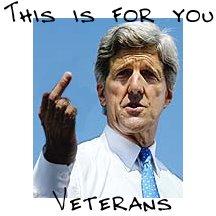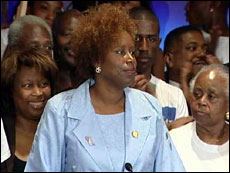Stabilizing Factor?
Can the French really be this naïve? Do they actually believe that Iran is the stabilizing factor in the region while at the same time they vote to stop Iran uranium enrichment? One can only wonder when the French will implement Sharia law.
The French foreign minister, Philippe Douste-Blazy, held talks with Prime Minister Fouad Siniora in Beirut today and with other officials, and later spoke of what he said was the important role Iran could play in resolving the crisis.
While the United States has criticized Iran for what it calls its support for Hezbollah, Mr. Douste-Blazy said Iran was an important actor in the Middle East and that the country played a “stabilizing role” in the region.
If supporting Hezbollah financially and with weapons is considered stabilizing...than Mr. Douste-Blazy is right on target.
"It is clear that we could never accept the destabilization of Lebanon, which could lead to destabilization of the region," Mr. Douste-Blazy told reporters in Beirut.
"In the region there is of course a country such as Iran — a great country, a great people and a great civilization which is respected and which plays a stabilizing role in the region,” he said.
Nobody kisses ass like the French.
Iran’s foreign minister, Manouchehr Mottaki, had been scheduled to arrive in Beirut in the afternoon, coinciding with Mr. Douste-Blazy’s visit, but officials said the Iranian minister was delayed in Damascus and was expected to arrive after the French minister left.
Mr. Mottaki said today he was visiting Beirut to “voice support” for the Lebanese government and nation and to express sympathy after the Qana attacks, according to the Iranian news agency IRNA.
Ms. Rice cancelled a planned trip to Beirut on Sunday after an Israeli airstrike that killed dozens of people in Qana in south Lebanon. Hours after Ms. Rice announced she was cutting her visit to the region short and leaving Jerusalem directly for Washington, President Jacques Chirac of France ordered Mr. Douste-Blazy to head to Lebanon immediately, moving to lead the diplomatic campaign to end the crisis in Lebanon.
Today, Ms. Rice flew home from the Middle East after declaring that there was an “emerging consensus” for a cease-fire between Israel and Hezbollah that could be reached this week.
Mr. Douste-Blazy had said on Sunday that his talks with Mr. Siniora and others were intended to find the conditions for both an “immediate suspension” of offensive operations and a “political agreement that can last,” he said in a telephone interview before traveling to Beirut.
While Mr. Douste-Blazy has denied that he was going to Lebanon because Ms. Rice was not, the French government is worried that Israel’s deadly air raid on Qana has so weakened the government of Lebanon that it may not survive.
The Bush administration has resisted pressure to call for an immediate ceasefire. Today, Mr. Bush called for Iran to end its financial and military support for terrorist groups, including Hezbollah, and that Syria must end its support for terrorism and “respect the sovereignty of Lebanon.”
Iran has recently seemed to be trying to position itself for a role in ending the crisis. Mr. Mottaki has previously said a cease-fire and an exchange of prisoners would be a possible way forward.



